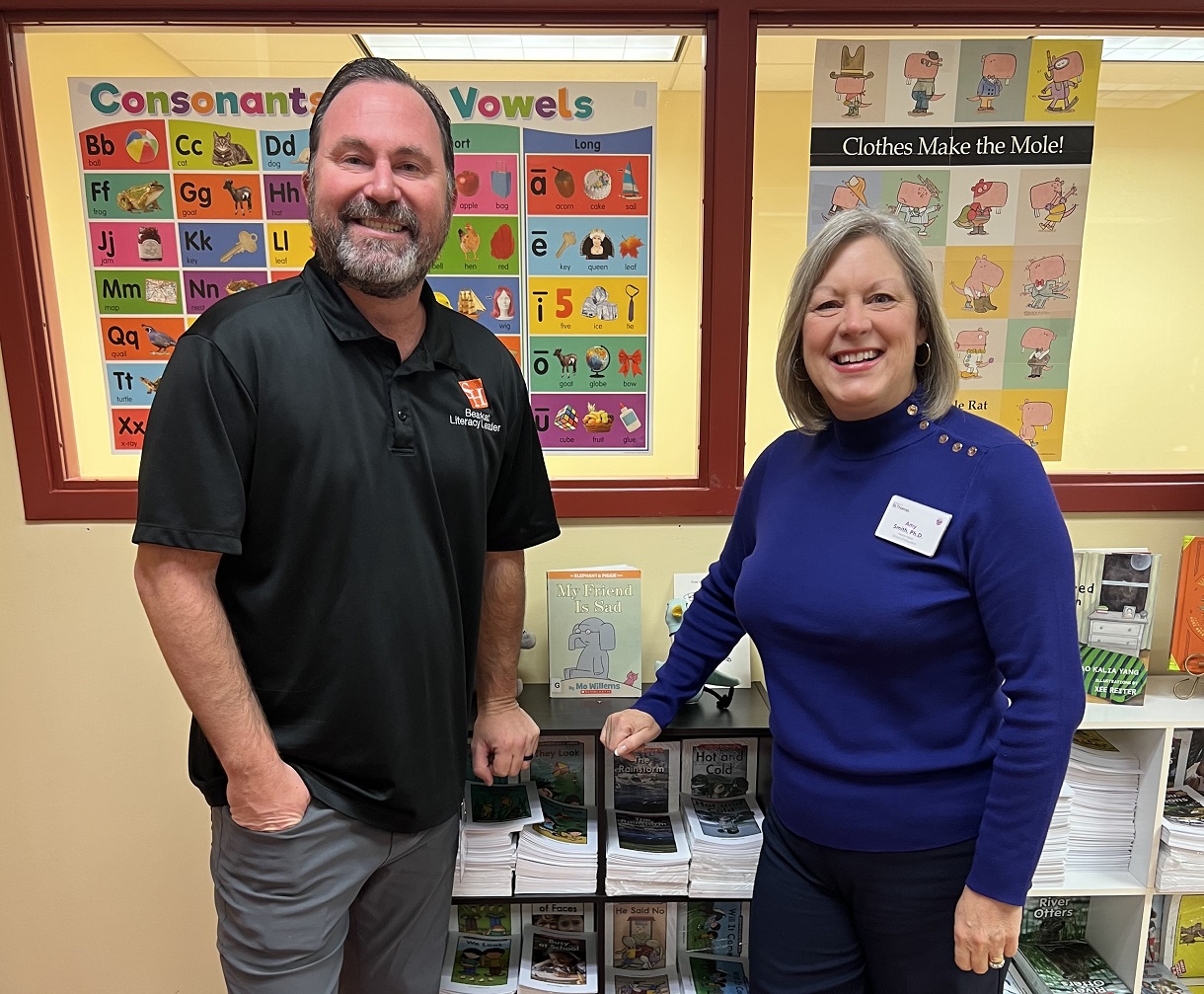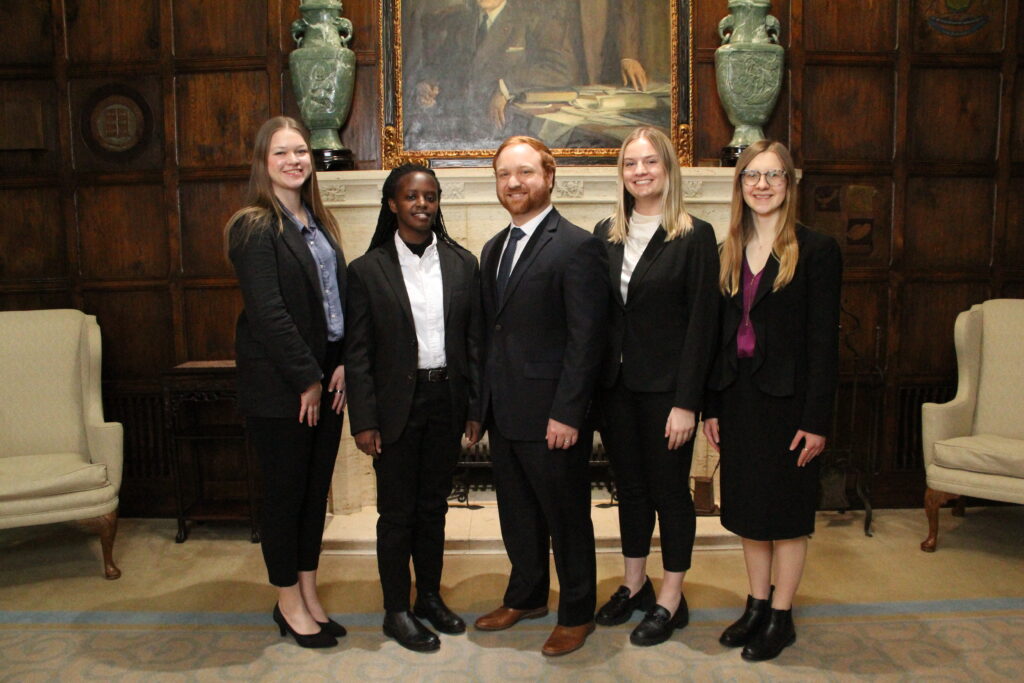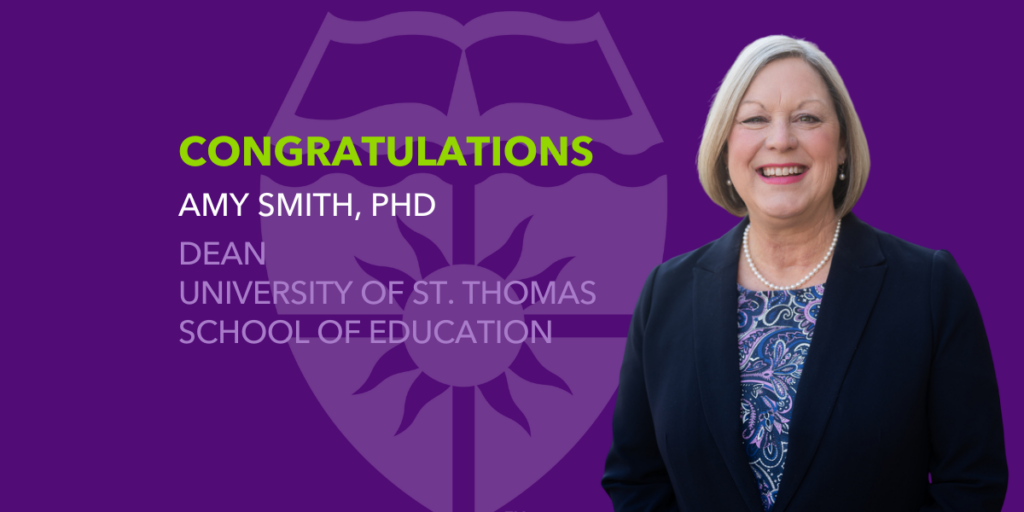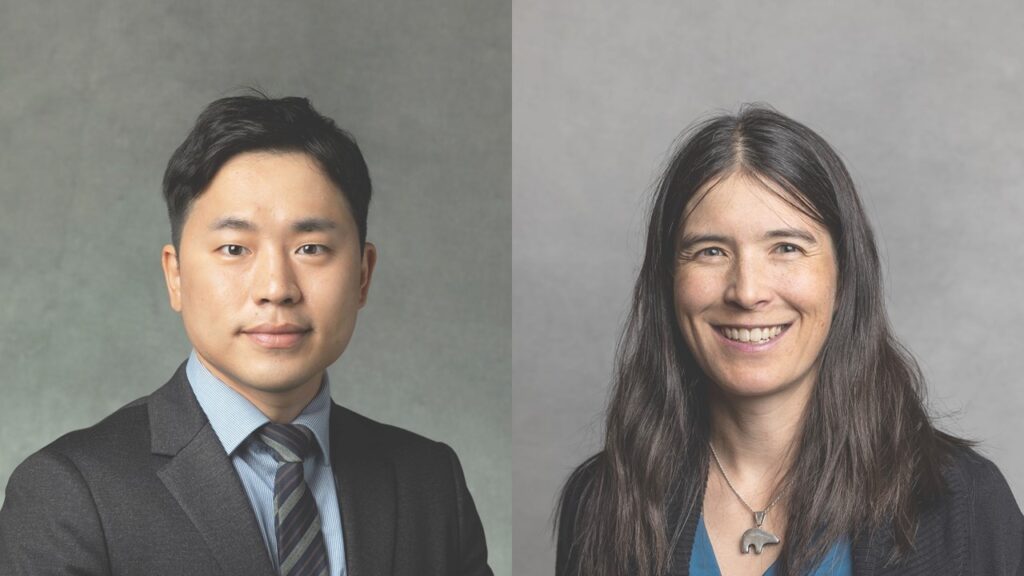The School of Education at the University of St. Thomas played a key role in the recent East Side Learning Center (ESLC) event focused on the science of reading. The Creating Super Readers! event drew current and retired teachers, education students, and community members serving as ESLC tutors.
School of Education interim Dean Dr. Amy Smith led one of the many breakout sessions made available to help people implement the science of reading with young readers.
“Sharing the knowledge base around the science of reading is the key to empowering teachers with evidence-based strategies, ensuring every student not only learns to read but discovers the lifelong joy of it,” Smith said. “It equips educators, both emerging and practicing, with the knowledge to unravel the complexities of language, fostering a foundation for academic success and a love for learning.”
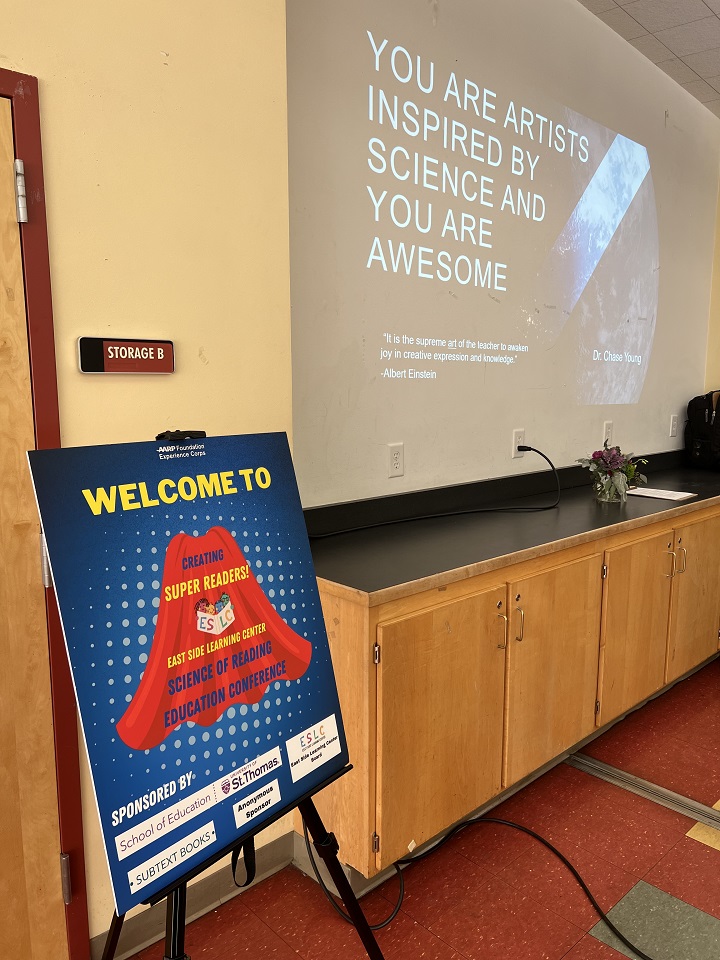
The mission of the East Side Learning Center (ESLC) in St. Paul largely remains unchanged since it opened its doors in 2001: to unlock each child’s potential through the foundation of reading. Twenty-two years later, hundreds of volunteers have helped thousands of the community’s most vulnerable children overcome barriers to education and build their reading skills.
“People who read succeed; it is the truth,” said ESLC Executive Director Mary Fritz. This simple but profound statement was part of Fritz’s opening remarks at the Creating Super Readers! event, co-sponsored by the School of Education.
Dr. Chase Young, a former teacher and professor at Sam Houston State University, kicked off the day with insights from his book, Artfully Teaching the Science of Reading.
“The average teacher affects 3,000 students during their career. Their impact is huge, and nearly 80% of students say a teacher has encouraged them to follow their dreams. The relationships, the connections teachers make are so important,” Young said.
“The science of reading movement should be about using research to teach kids how to read while building their skills in the best way we know how,” Young said. “But in this debate around teaching, we cannot lose teacher autonomy, identity and agency. We have to take the science and integrate it with artful instruction.”
The School of Education offers many resources for new and experienced teachers to sharpen their skills and help all students succeed in the classroom, including the K-12 Reading Endorsement. Learn more online.
